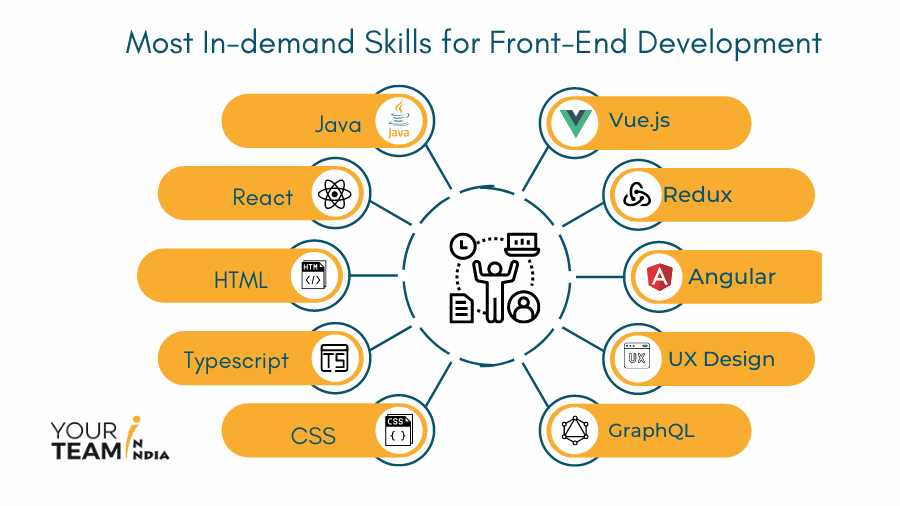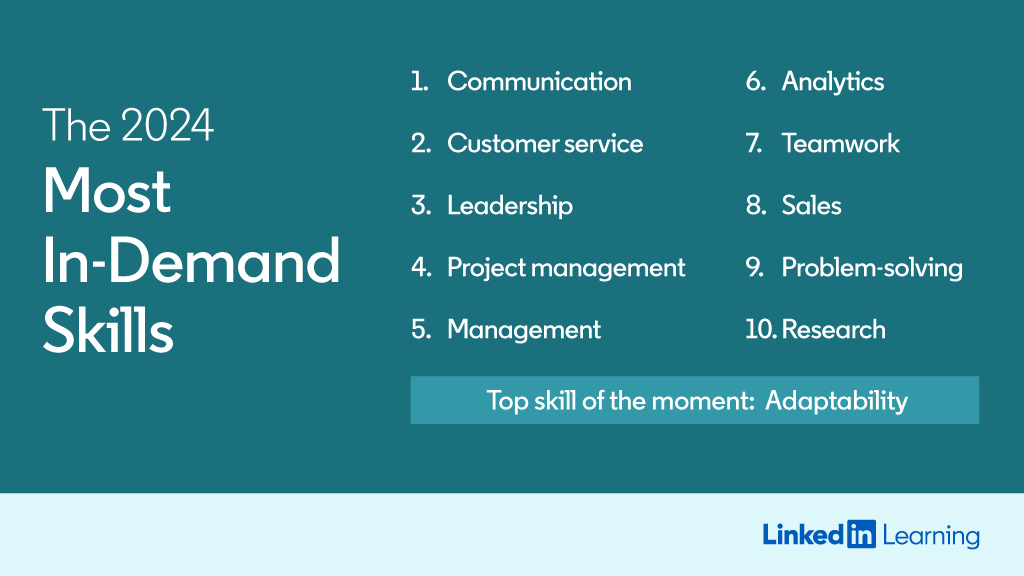As the job market in America evolves, employers are on the hunt for workers with skills that match the demands of a fast-changing world. In 2025, technology, adaptability, and human-centered abilities are shaping the workforce. From artificial intelligence to emotional intelligence, the skills that companies value most reflect a blend of cutting-edge innovation and timeless human strengths. Whether you’re a job seeker aiming to stand out or a professional looking to pivot, knowing these in-demand skills can give you a competitive edge. Here’s a deep dive into the top skills employers are prioritizing in America this year, why they matter, and how you can start building them.

The Big Picture: Why Skills Matter More Than Ever
The American workplace is undergoing a transformation. Automation and artificial intelligence are taking over routine tasks, while global challenges like climate change and digital connectivity are creating new opportunities. According to industry reports, nearly 40% of job skills are expected to change by 2030, driven by technological advancements and shifting economic priorities. This means employers are no longer just looking for degrees or years of experience—they want specific, actionable skills that drive results.
For job seekers, this shift is both exciting and daunting. The good news? Many of these skills can be learned through affordable online courses, hands-on projects, or workplace experience. The key is to focus on what employers need now and in the future. Let’s explore the top in-demand skills that are catching the attention of hiring managers across industries.

1. Artificial Intelligence and Machine Learning
It’s no surprise that artificial intelligence (AI) and machine learning (ML) are at the top of the list. From healthcare to finance, businesses are using AI to streamline operations, predict trends, and enhance customer experiences. In 2025, companies are seeking professionals who can develop AI tools, understand natural language processing, and ensure ethical AI practices. Roles like AI specialists and machine learning engineers are seeing explosive demand, with job growth projected at 36% through 2033.
Why it matters: AI is transforming how businesses operate, and workers who can harness its power are invaluable. Even non-technical roles benefit from AI literacy, as understanding how to use AI tools can boost productivity.
How to get started: Beginners can take online courses like “AI for Everyone” by DeepLearning.AI or explore certifications like IBM’s AI Engineering Professional Certificate. Hands-on practice through platforms like GitHub can also showcase your skills to employers.
2. Data Science and Analytics
Data is the backbone of modern decision-making, and employers are desperate for workers who can turn raw numbers into actionable insights. Data scientists and analysts use tools like Python, SQL, and Tableau to uncover trends, optimize strategies, and drive growth. With businesses collecting more data than ever, this skill is critical across industries, from retail to healthcare.
Why it matters: Companies rely on data to stay competitive. Workers who can interpret complex datasets and communicate findings clearly are in short supply, making this a high-paying skill.
How to get started: Start with free resources like Google’s Data Analytics Certificate or Coursera’s Data Science Specialization. Practice by analyzing real-world datasets on platforms like Kaggle to build a portfolio.

3. Cybersecurity
As digital threats grow, cybersecurity has become a top priority for businesses. Employers are looking for professionals skilled in incident response, risk management, and software testing to protect sensitive data. With cyberattacks on the rise, cybersecurity roles are expected to see strong demand, with low unemployment rates and competitive salaries.
Why it matters: A single data breach can cost millions, so companies are investing heavily in security. Cybersecurity skills are essential for tech roles and beyond, as every industry faces digital risks.
How to get started: Certifications like CompTIA Security+ or Certified Ethical Hacker (CEH) are great entry points. Online platforms like TryHackMe offer practical exercises to hone your skills.
4. Cloud Computing
Cloud computing is the foundation of modern tech infrastructure, enabling businesses to scale operations and store data efficiently. Employers need workers who can manage cloud platforms like AWS, Azure, or Google Cloud, as well as debug and secure cloud-based applications. Roles like cloud engineers and architects are in high demand, especially in industries like finance and manufacturing.
Why it matters: As companies move away from on-site servers, cloud expertise is critical for staying agile and cost-effective.
How to get started: Explore certifications like AWS Certified Solutions Architect or Microsoft Azure Fundamentals. Free tutorials on YouTube or platforms like A Cloud Guru can help you get hands-on experience.
5. Soft Skills: Emotional Intelligence and Collaboration
While tech skills dominate, employers are equally focused on soft skills like emotional intelligence (EI) and collaboration. EI—the ability to understand and manage emotions—helps workers build strong relationships, resolve conflicts, and lead teams effectively. Collaboration skills are vital in hybrid and remote work environments, where clear communication and teamwork drive success.
Why it matters: Machines can’t replicate human connection. Employers value workers who can navigate complex interpersonal dynamics and foster a positive workplace culture.
How to get started: Practice active listening and empathy in your daily interactions. Online courses like Coursera’s “Emotional Intelligence at Work” or workshops on team dynamics can sharpen these skills.
6. Project Management
Project management is a catch-all skill that combines leadership, organization, and communication. Whether you’re coordinating a software launch or a marketing campaign, employers need workers who can keep teams on track, manage budgets, and meet deadlines. Project managers are in demand across industries, with roles often commanding six-figure salaries.
Why it matters: Businesses rely on project managers to turn ideas into reality. This skill is transferable, making it a great choice for career changers.
How to get started: Certifications like PMP (Project Management Professional) or CAPM (Certified Associate in Project Management) are widely recognized. Free tools like Trello or Asana can help you practice managing tasks.
7. Digital Marketing
In a world driven by social media and online engagement, digital marketing skills are a must. Employers are looking for professionals who can master search engine optimization (SEO), content creation, and social media strategy to boost brand visibility. With digital ad spending on the rise, these skills are critical for businesses of all sizes.
Why it matters: Digital marketing drives customer engagement and sales. Workers who can craft compelling campaigns are highly sought after.
How to get started: Google’s Digital Marketing Certificate or HubSpot’s Content Marketing Course are excellent starting points. Build a portfolio by creating content for a blog or social media account.
8. Creative Problem-Solving
As workplaces become more complex, employers value workers who can think outside the box and tackle challenges creatively. Creative problem-solving involves analyzing issues, brainstorming solutions, and adapting to unexpected hurdles. This skill is especially important in industries facing rapid change, like tech and healthcare.
Why it matters: Businesses need innovative thinkers to stay ahead of the curve. Creative problem-solvers can turn obstacles into opportunities.
How to get started: Participate in hackathons, group projects, or brainstorming sessions. Online courses on creative thinking, like those on LinkedIn Learning, can also help.
The Road Ahead: How to Stay Competitive
The skills listed above are just the beginning. To stay competitive, job seekers must embrace lifelong learning and adaptability. Employers are increasingly prioritizing skills over degrees, with 81% of executives favoring skills-based hiring, according to recent workforce studies. This means you don’t need a fancy degree to land a great job—just the right abilities and a willingness to grow.
Here are a few tips to get ahead:
- Upskill regularly: Take short, focused courses to stay current with industry trends.
- Build a portfolio: Showcase your work on platforms like GitHub, Behance, or LinkedIn.
- Network: Connect with professionals in your field to learn about new opportunities.
- Stay curious: A growth mindset will help you adapt to whatever changes come next.
Why This Matters to You
The American job market in 2025 is full of possibilities, but it rewards those who are prepared. By focusing on in-demand skills like AI, data science, cybersecurity, and soft skills, you can position yourself as a top candidate. These skills not only open doors to high-paying jobs but also give you the flexibility to explore new industries and roles.
For employers, the challenge is clear: invest in training and talent development to close the skills gap. For workers, the opportunity is equally clear: take charge of your learning and build the skills that will shape the future. Whether you’re coding the next big app or leading a team through change, the skills you develop today will define your success tomorrow.






